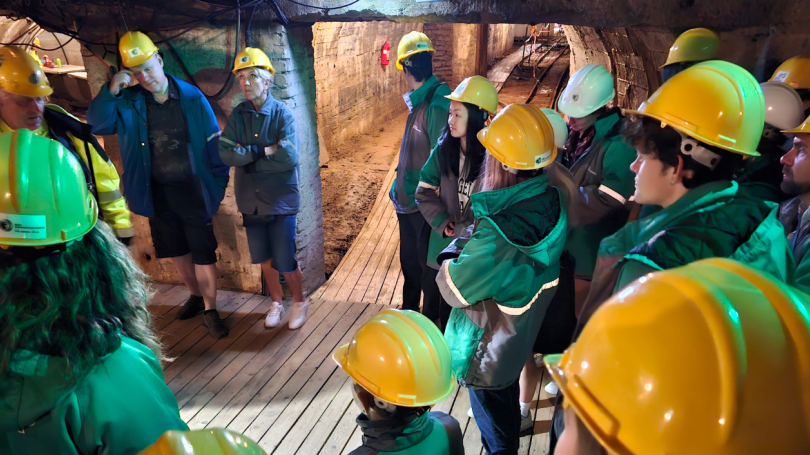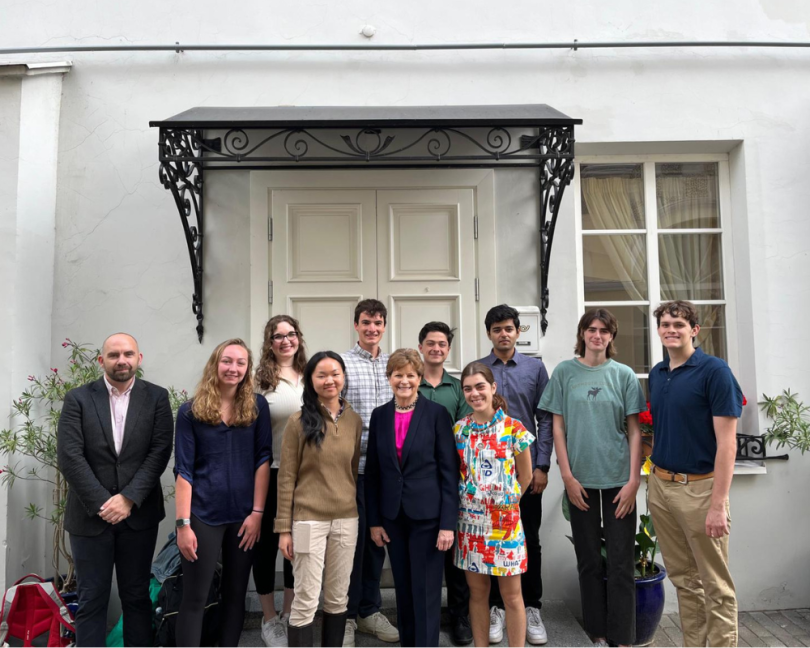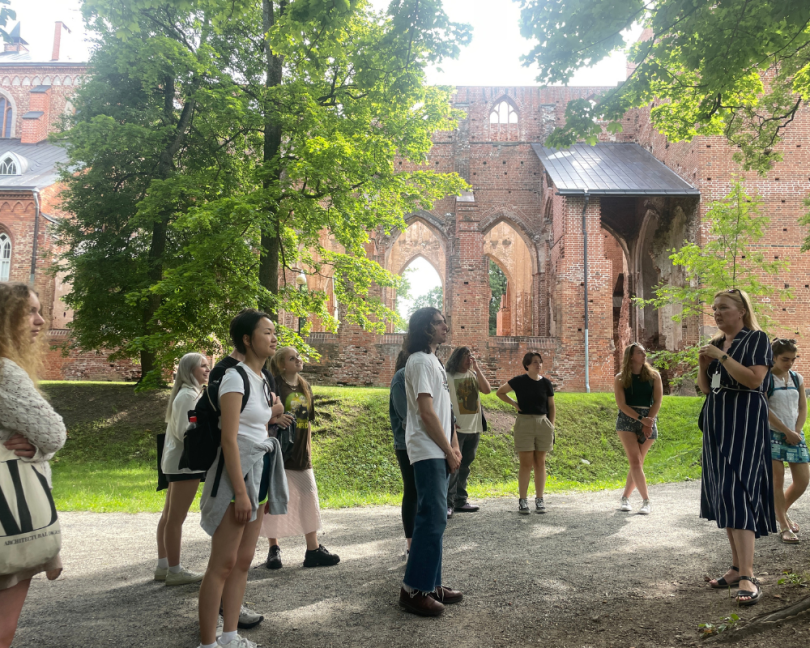

When you travel over 4,000 miles from home to study abroad, you expect your perspective to widen. New culture, new ideas, new people, new sights and sounds — this is why we travel: to learn, grow, and understand how big the world is. Of course, sometimes it turns out that you're in Vilnius, Lithuania ahead of a NATO meeting and you wind up in a conversation with your state congressional representative and then attend a public talk from your president, highlighting how small the world can be.

For the sixteen Dartmouth students who traveled to the Latvia, Lithuania, and Estonia in summer 2023 as part of the first Baltic LEAP (Language, Energy and Politics), a Foreign Studies Program (FSP) co-sponsored by the Irving Institute, Department of Government, and Department of Eastern European, Eurasian, and Russian Studies (EEERS) the "small-world" activities — selfies with US Senator Jeanne Shaheen (D-NH) and a speech by Joe Biden — were just part of the fabric of a ten-week cultural and academic adventure that gave them the chance to explore new places and also apply what they learned back to their lives as students and future leaders.
Getting to Know the Baltics
While one student participant did cite the NATO summit as their favorite part of the trip, participants had a wide range of formal and informal opportunities to explore the unique characteristics of each country. Over the course of the ten-week program, the students spent time in Vilnius, Lithuania; Riga, Latvia; and Tartu, Estonia, visiting museums and other cultural sites, learning from local experts, and more. Two longer trips included a day long trip to Kaunas (a city tour and a visit to Fort 9, the former prison and concentration camp which now serves as a museum of Nazi and Soviet occupation) and a two-day trip to Klaipeda and the Curonian Spit, which included a city tour, a boat tour of the Klaipeda liquid natural gas (LNG) terminal, and a trip to the Spit, along with swimming in the Baltic Sea. A number of students pointed to the opportunities to strike out on their own and explore, visiting local cafes and getting to know local people, as a highlight, as well.
All participants in the program took an overview course on Baltic culture and history, taught by EEERS professors Mikhail Gronas and Ainsley Morse with frequent local guest experts. About half of the group pursued intensive Russian language study, while the other half focused on energy and government. For the energy and government students, the Baltics, with its past and present deeply entangled with Europe and Russia, offered a rich and compelling example of how energy and political transitions are taking place across the globe.

Learning from Baltic Energy Transitions
Energy and government students enrolled in a two-part course — one part based at Vilnius University in Lithuania and the other at Tartu University in Estonia — on social, economic, and environmental dimensions of energy transitions in the Baltics. The students learned about how the histories and futures of Baltic energy systems were shaped by the region's ties to Eastern Europe and Scandinavia as well as proximity and historical connections to Russia.
Student feedback on the energy coursework indicated that participants were inspired by the things they learned. One student anticipated the trip would change her academic and professional future, as she discovered this was the direction she wanted to go. Another wrote that they had been inspired to do more research on Estonian attitudes on the energy transition as part of an independent study project when they returned to campus.
Comments like these, notes Dr. Amanda Graham, Academic Director at the Irving Institute who joined the group for three weeks of the Baltic LEAP, really encapsulate the intention behind academic travel. "Foreign study is a huge way in which Dartmouth serves as a 'basecamp to the world,' and excels at helping students learn and thrive in diverse other cultures as a way of building the connections we need across the globe to advance sustainable futures for all."
The second Baltic LEAP is scheduled for summer 2024. Students can visit the Guarini School for International Studies website to learn more about applying.